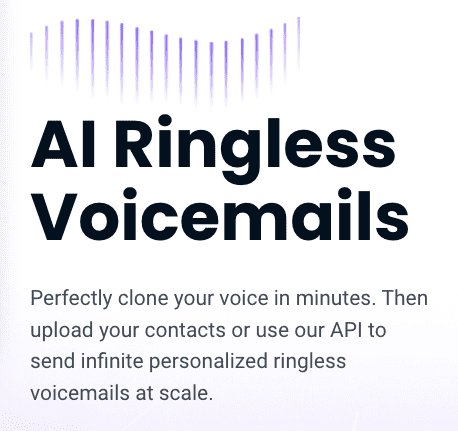Summary
Resemble AI is a sophisticated platform for voice synthesis, crafted to develop authentic and adaptable voice content for multiple uses. This solution harnesses state-of-the-art AI advancements to replicate voices with remarkable precision, facilitating the creation of realistic audio outputs from textual data. It’s especially beneficial for developers and content creators requiring voiceovers or computerized speech for video games, virtual assistants, audiobooks, and diverse multimedia ventures.
A standout aspect of Resemble AI is its capability to adjust the emotion and tone of the generated voice, providing a more engaging and customized auditory experience. This feature is crucial for projects necessitating subtle voice adjustments to express various emotions or interactions. Additionally, Resemble AI is compatible with numerous languages, broadening its applicability to international projects.
The platform presents a user-friendly API that integrates effortlessly with pre-existing operations, making it accessible to both experts and enthusiasts. Whether your goal is to boost user involvement through tailored voice exchanges or to simplify digital content creation, Resemble AI offers a comprehensive and adaptable solution for all your voice generation requirements.
Main features
- Instantaneous voice duplication: Develop a personalized digital voice that matches yours in just minutes for customized user experiences.
- Tailored voice production: Design distinctive, AI-crafted voices for your brand or characters without needing extensive audio production skills.
- Emotion regulation: Modify the emotional tone of the AI-generated voice to suit the content’s context, boosting listener involvement.
- API connectivity: Integrate easily with existing software using a powerful API, ensuring smooth voice automation.
- Adaptable solutions: From small-scale projects to enterprise-level needs, the platform adapts to various voice synthesis demands.
- Multilingual compatibility: Develop and implement voices in several languages, extending your audience to a global scale.
Advantages
- Cost-effectiveness: Decrease costs linked to employing voice actors and lengthy recording times by utilizing AI-generated speech.
- Accessibility enhancements: Improve product accessibility with voice features enabling visually impaired users to navigate easily.
- Rapid content revisions: Quickly revise spoken content in applications without re-recording, keeping information up-to-date.
- Uniform quality: Ensure a consistent level of voice quality across all outputs, removing inconsistencies found in human recordings.
- Privacy adherence: Make use of technology that complies with privacy regulations, safeguarding user data and voice fingerprints.
Disadvantages
- Significant cost barrier: The pricing model might be challenging for small enterprises or individual creators with limited funding.
- Restricted language choices: Currently offers a limited selection of languages, potentially excluding speakers of non-supported languages.
- Intricate integration: Integrating the API with existing systems can be difficult and may require advanced technical knowledge.
- Internet dependency: Needs a stable internet connection for access to cloud services, which limits offline functionality.
- Privacy issues: Handling of vocal data poses privacy challenges, especially for those wary of sharing biometric information.



